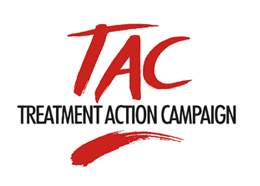 [Treatment Access Campaign press release, Link (CC-BY-SA)] The Fix the Patent Laws (FTPL) Campaign, today called on the Department of Trade and Industry (DTI) to end years of pharmaceutical company price gouging and broken promises for patent law reform and produce a final intellectual property (IP) policy and bill to amend the Patents Act.
[Treatment Access Campaign press release, Link (CC-BY-SA)] The Fix the Patent Laws (FTPL) Campaign, today called on the Department of Trade and Industry (DTI) to end years of pharmaceutical company price gouging and broken promises for patent law reform and produce a final intellectual property (IP) policy and bill to amend the Patents Act.
The coalition released a detailed timeline revealing how broken promises by the DTI, and push back by the pharmaceutical industry have contributed to government’s delays in finalising reform of South Africa’s patent laws. [1]
“It is now more than two years since the period for public comment on the draft Intellectual Property Policy ended and the policy appears to have been shelved,”said Anele Yawa, General Secretary at the TAC. “Minister Davies has repeatedly ignored requests from the Fix the Patent Laws coalition for clarification on when the policy will be finalised and a bill to amend the Patents Act will be brought before Parliament.”
While the policy has stalled, the prices for certain cancer, HIV, and mental health medicines remain significantly higher in South Africa than in other countries, which prevents significant numbers of patients from getting the medicines they need. As a coalition of 18 patient groups we find these delays deeply concerning as they have a daily and direct impact on us and our members.
Amy Reed*, a woman living in Johannesburg who needs aripiprazole (branded as Abilify ®) to treat her bipolar disorder, struggles to cover its high costs. “Every month, my co-payment on Abilify is over R800.That is an obscene amount of money to be spending. I haven’t done anything wrong, I am an ill person, accessing medications and I am absolutely punished by the price for doing so.”
Tobeka Daki, a woman using the public health system in the Eastern Cape, is unable to access the medicine (trastuzumab, branded Herceptin®) she needs to treat HER2 positive breast cancer because its high cost renders it unavailable to public sector patients. “I was told that I must get Herceptin. So, why should I not get it? I think if I get this treatment it will give me a chance to see my two sons and my grandson grow up. I’m asking the government to please help the poor to get access to Herceptin.”
In our letter to Minister Davies [3], the FTPL coalition highlight 13 medicines for which generic and biosimilar products are available outside South Africa, but are blocked locally due to South Africa’s problematic patent laws.
If South Africa had access to prices available in India and/or Canada for generic and biosimilar trastuzumab, aripiprazole and celecoxib[4], then private sector patients and medical aid schemes could have jointly saved R191 million in 2013. Additionally, at lower prices, these medicines might have been made more widely available in the public healthcare sector.
Linda Greeff of the Cancer Alliance expressed her frustration at ongoing delays:“We need access to medicine now; many patients living with cancer are going from treatable to terminal while waiting for these potentially life-saving patent law reforms – it is heart wrenching.”
Breast cancer survivor, popular actress and supporter of the Fix the Patent Laws campaign, Lillian Dube said: “It breaks my heart that young women and mothers are dying because they can’t get access to life-saving medicines such as Herceptin. It is absolutely essential that women in need of Herceptin are able to access it.”
Since the release of the Draft Intellectual Property Policy in 2013, committing to pro-public health reform of SA’s patent laws, there have been significant efforts made by the large multinational pharmaceutical industry in the U.S. and Europe to sideline reform. The generic industry, by contrast, has generally supported reform. [5]
In January 2014 the Mail & Guardian uncovered a plot – dubbed “Pharmagate” – in which international pharmaceutical companies sought to influence South Africa’s patent law reform process through a US-directed and funded front organisation. [6]
In addition to the Pharmagate plot, leaked submissions to the DTI on the policy revealed that the American Chamber of Commerce and European Union backed their industries’ attempts to thwart pro-public health reform in South Africa. [7,8]
While the U.S. and European originator pharmaceutical industry are strongly opposed to the adoption of health safeguards into South Africa’s patent laws, these safeguards are expressly recognised in international trade agreements and recommended by multilateral agencies such as the United Nations clusters.
“It is unacceptable that Minister Davies is ignoring the pleas of South African people to urgently fix our patent laws and appears to be influenced by some pharmaceutical companies to abandon reforms to improve affordability of medicines,” said Vicki Pinkney-Atkinson of the SA NCD Alliance. “Our members need government action now – not in a couple more months or years.”
#ENDS#
FOR MORE INFORMATION & INTERVIEWS CONTACT
Julia Hill, Deputy Head of Mission South Africa/Lesotho, Médecins Sans Frontières, +27 727 660 335, julia.hill@joburg.msf.org
Catherine Tomlinson, Researcher, MSF Access Campaign, +076 318 5632, catherine.tomlinson@joburg.msf.org
Lotti Rutter, Senior Researcher, Treatment Action Campaign, +27 81 818 8493, lotti.rutter@tac.org.za
Linda Greeff, Exco member of Cancer Alliance and Director of People Living With Cancer, +27 82 551 3310, linda.greeff@cancercare.co.za
Vicki Pinkney-Atkinson, Strategic Development Manager, SA NCD Alliance, +27 83 383 8159, vicki@phango.org.za




